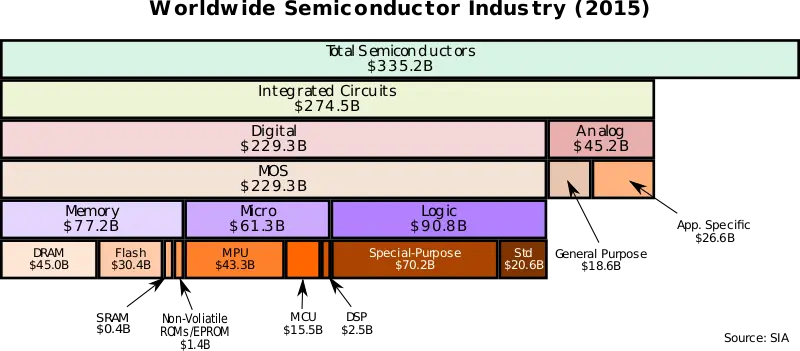| Line 10: | Line 10: | ||
{{empty section}} | {{empty section}} | ||
| − | == | + | == IC Market == |
| − | + | Integrated circuits accounts, as of 2016, for 82% of the entire [[semiconductor industry]]'s revenue. Digital integrated circuits accounts for 86% of that revenue. | |
| + | |||
| + | |||
| + | ::[[File:ic market breakdown (2015).svg|800px]] | ||
| + | |||
| + | |||
{{stub}} | {{stub}} | ||
Revision as of 01:47, 21 November 2017
An integrated circuit (IC) is a semicondcutor which contains multiple electronic components interconnected to form a complete electronic function. Integrated circuits are the most essential part of all electronic products.
Modern integrated circuits contain as much as billions of circuit components such as transistors, diodes, resistors, and capacitors onto a single monolithic die. Those components are interconnected to form a meaningful and complete electronic function. The semiconductor material used is usually silicon, but other alternatives such as gallium arsenide also exist.
Overview
| This section is empty; you can help add the missing info by editing this page. |
History
| This section is empty; you can help add the missing info by editing this page. |
IC Market
Integrated circuits accounts, as of 2016, for 82% of the entire semiconductor industry's revenue. Digital integrated circuits accounts for 86% of that revenue.
| This article is still a stub and needs your attention. You can help improve this article by editing this page and adding the missing information. |
